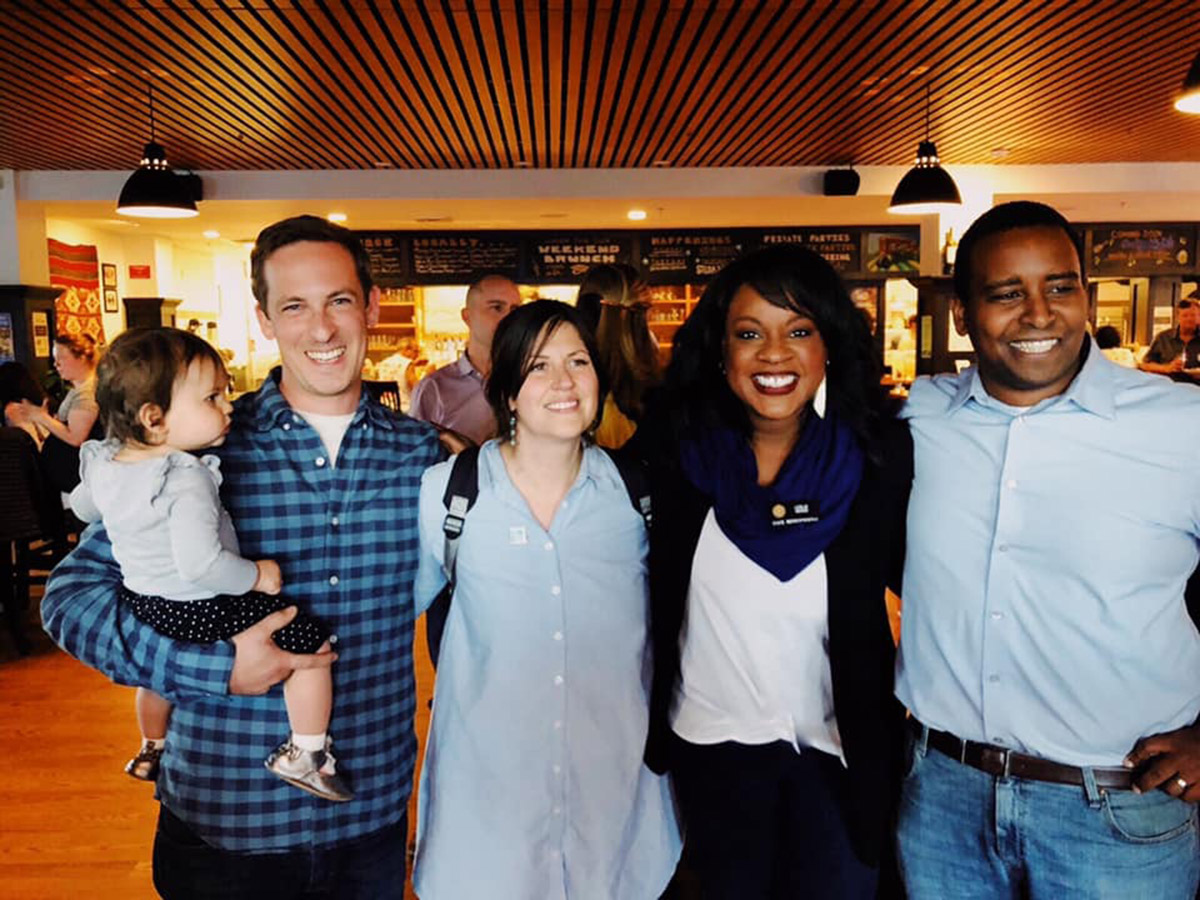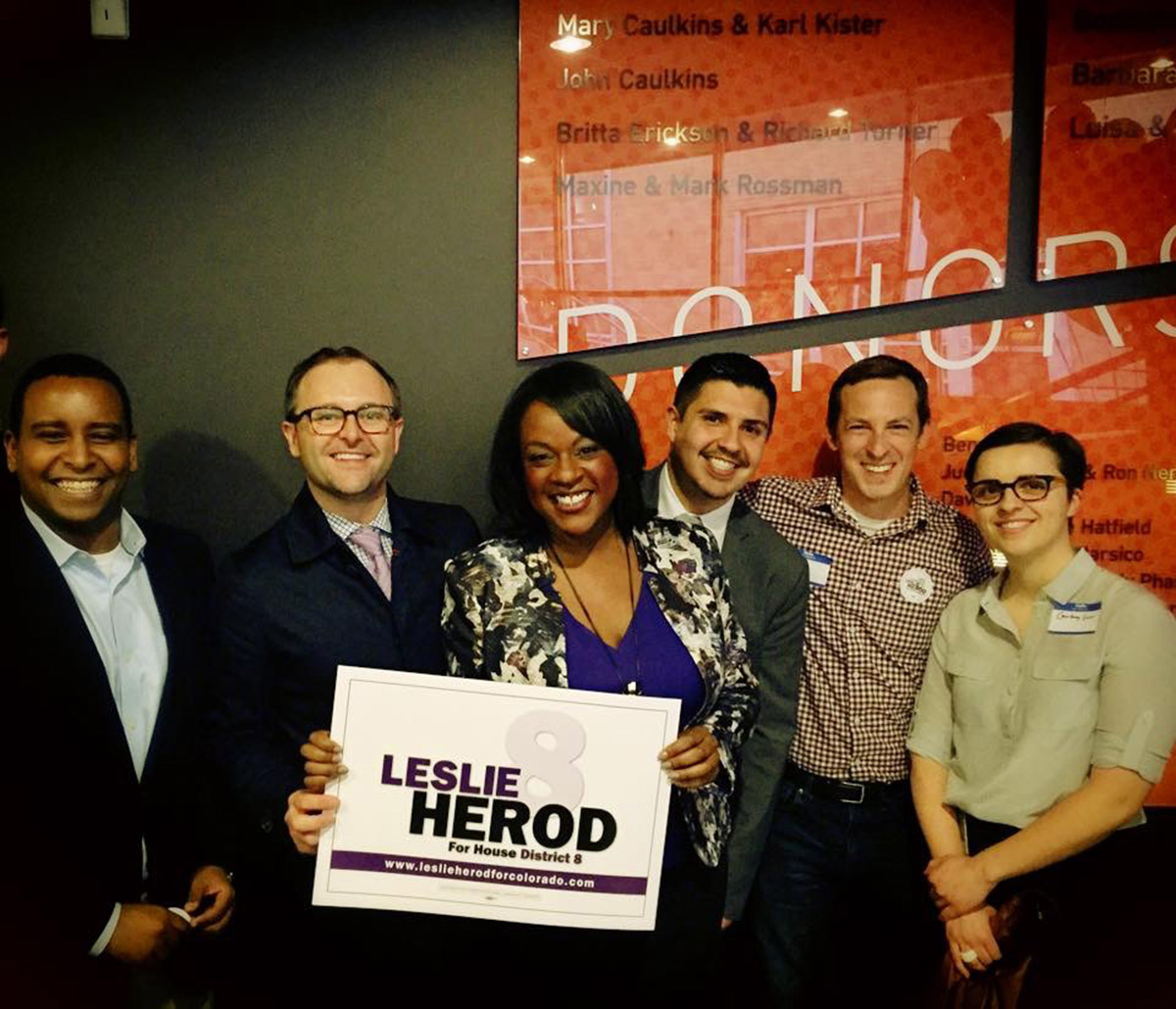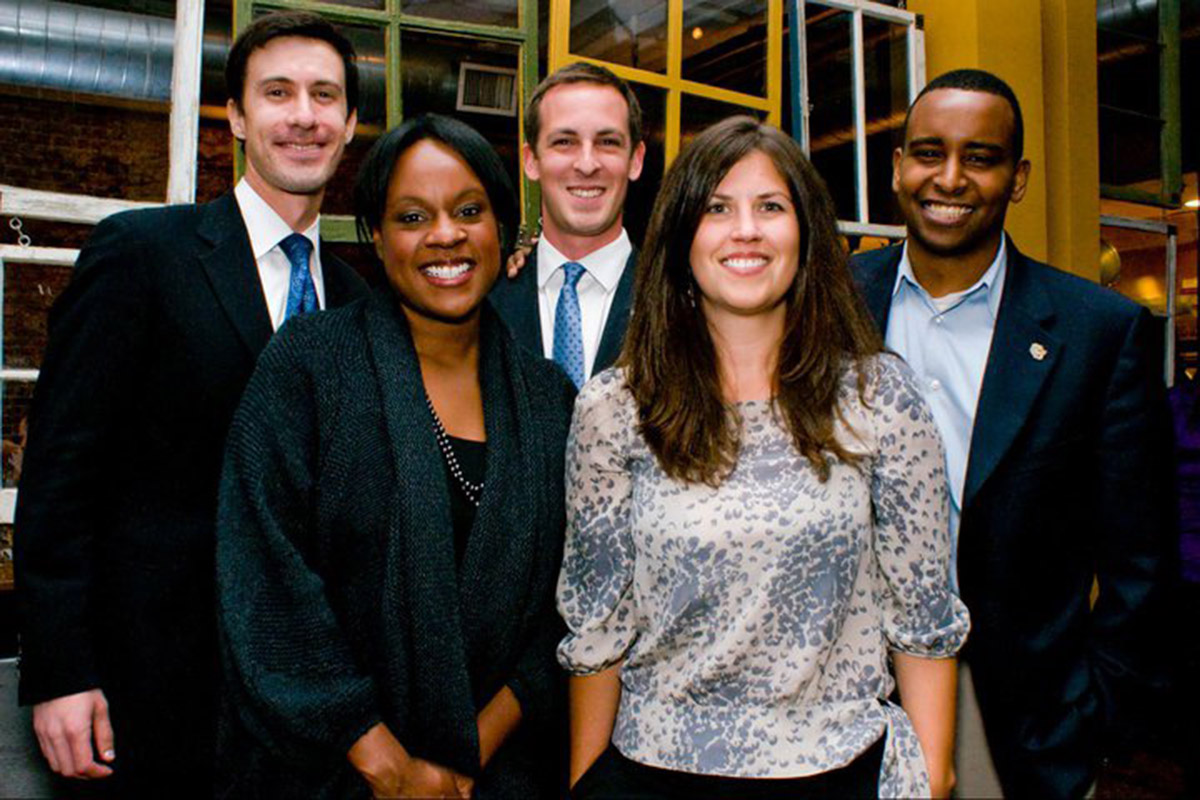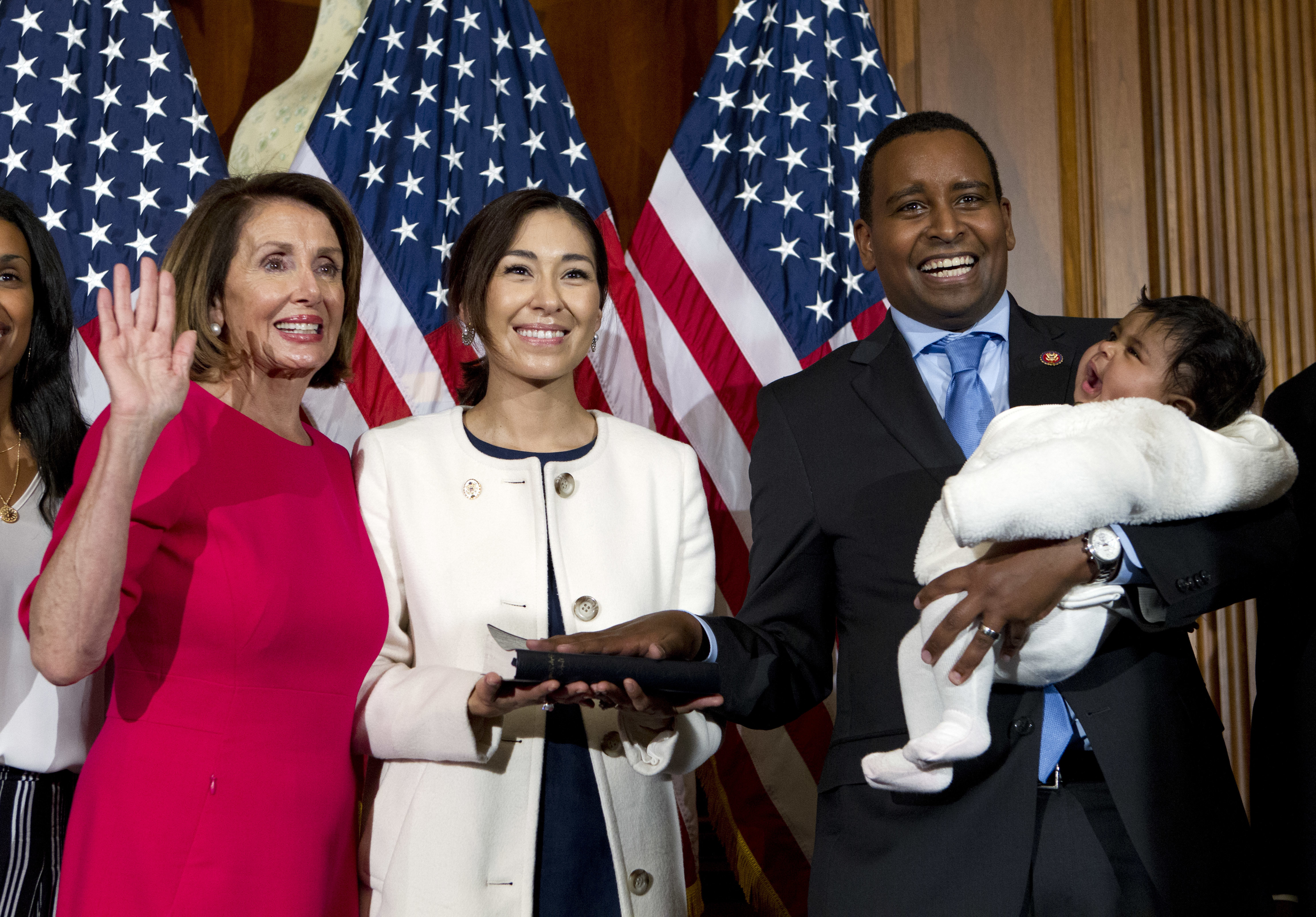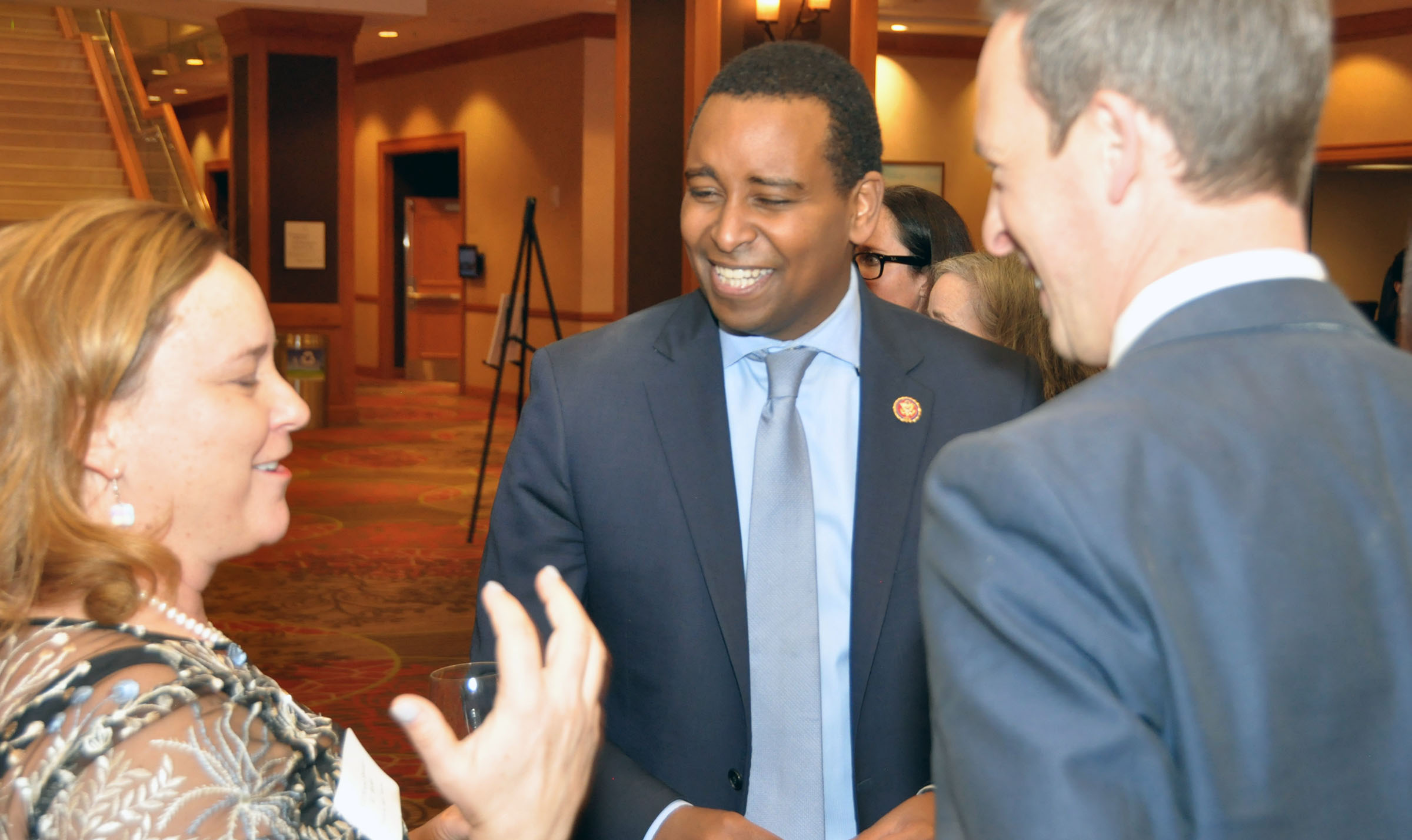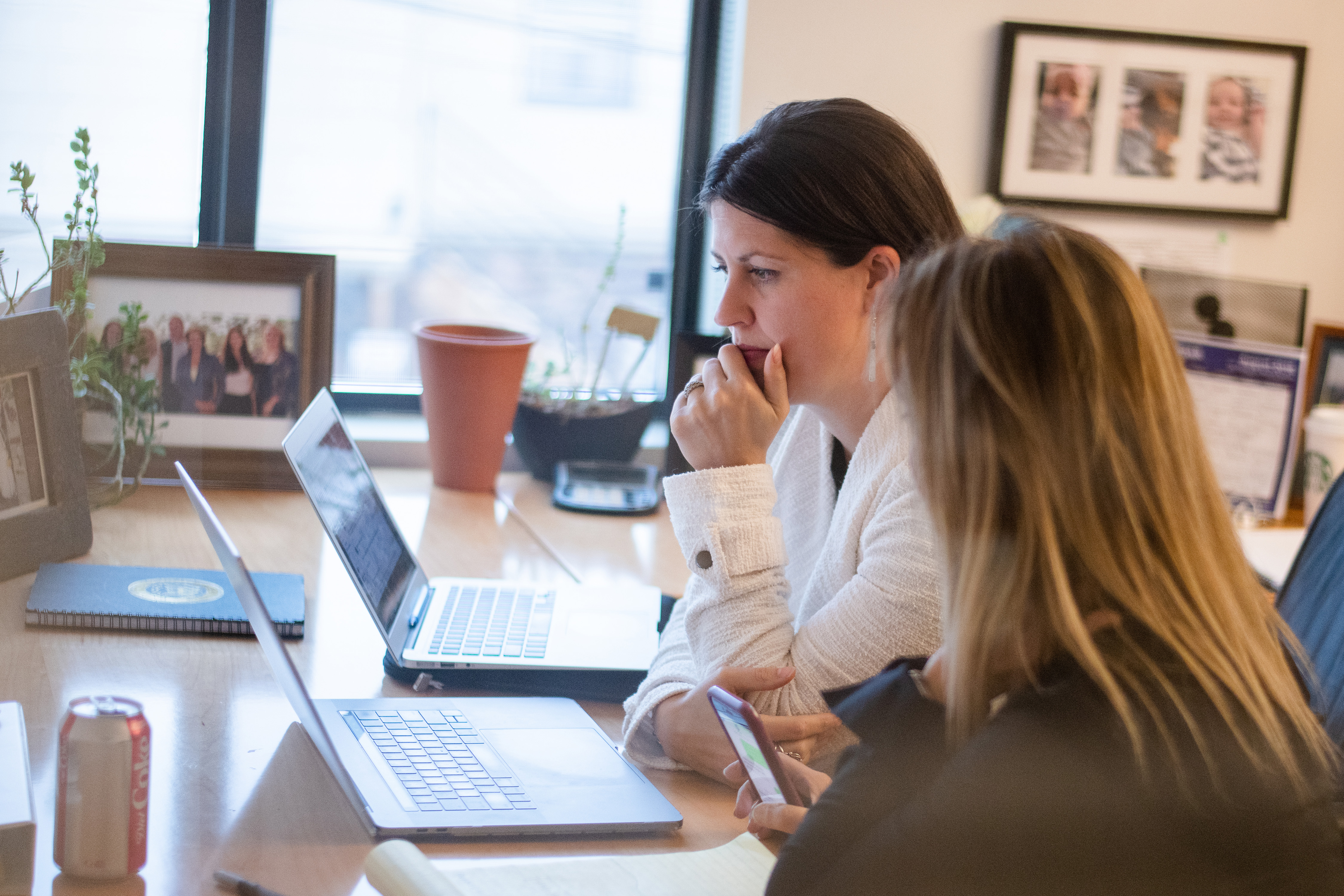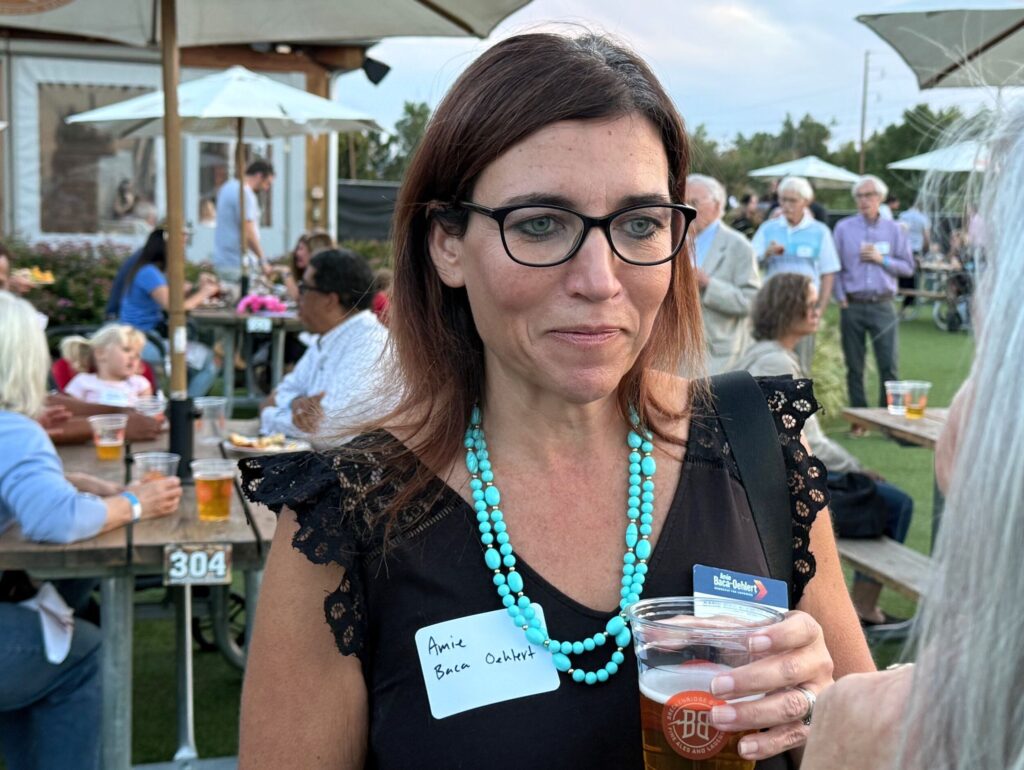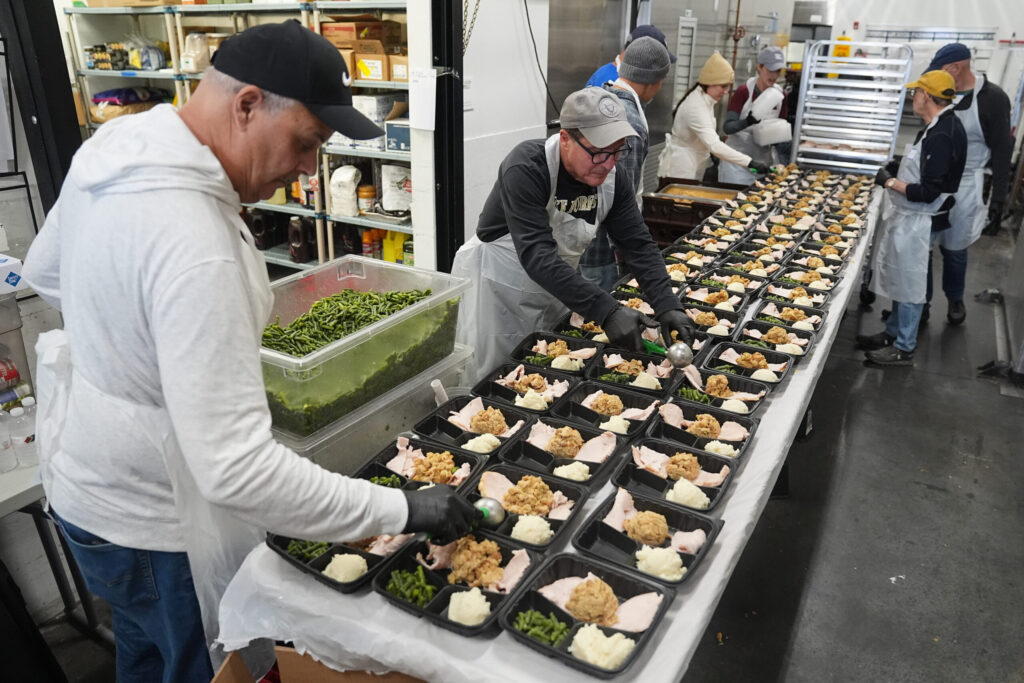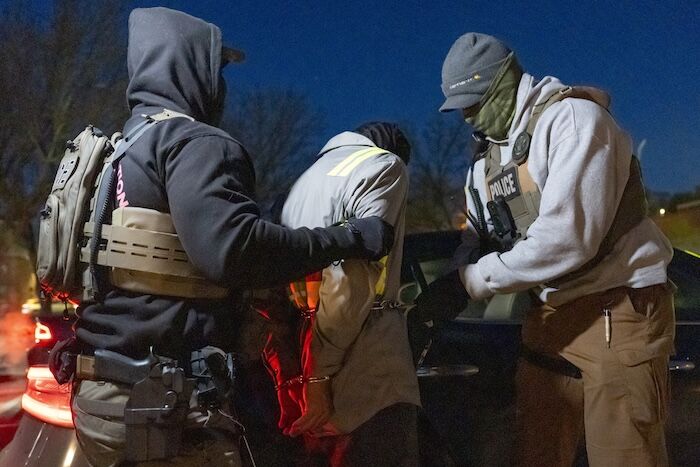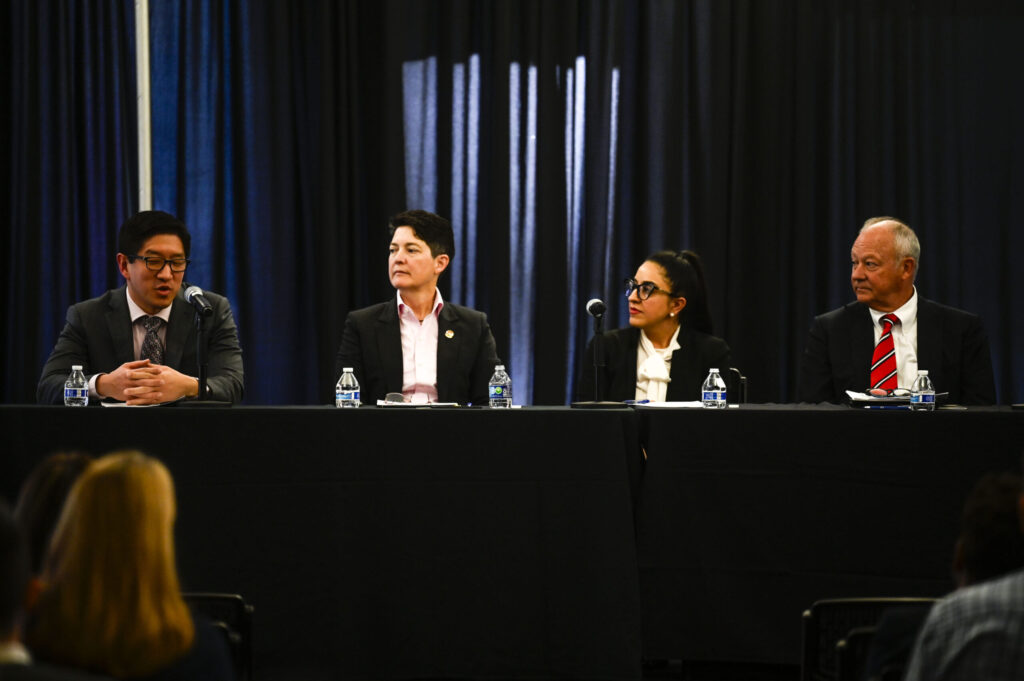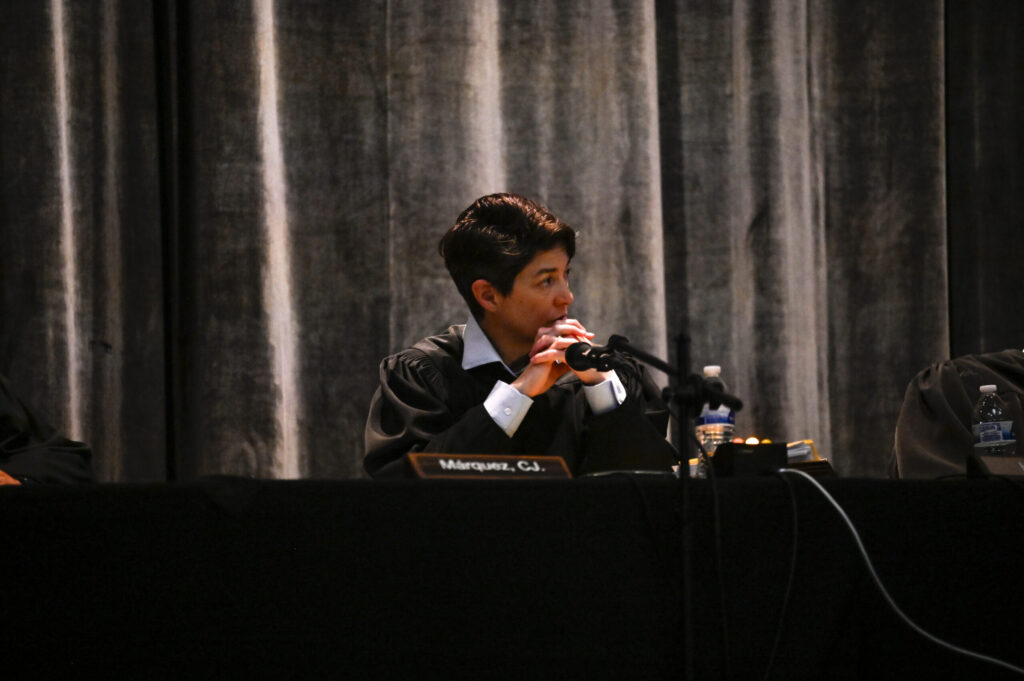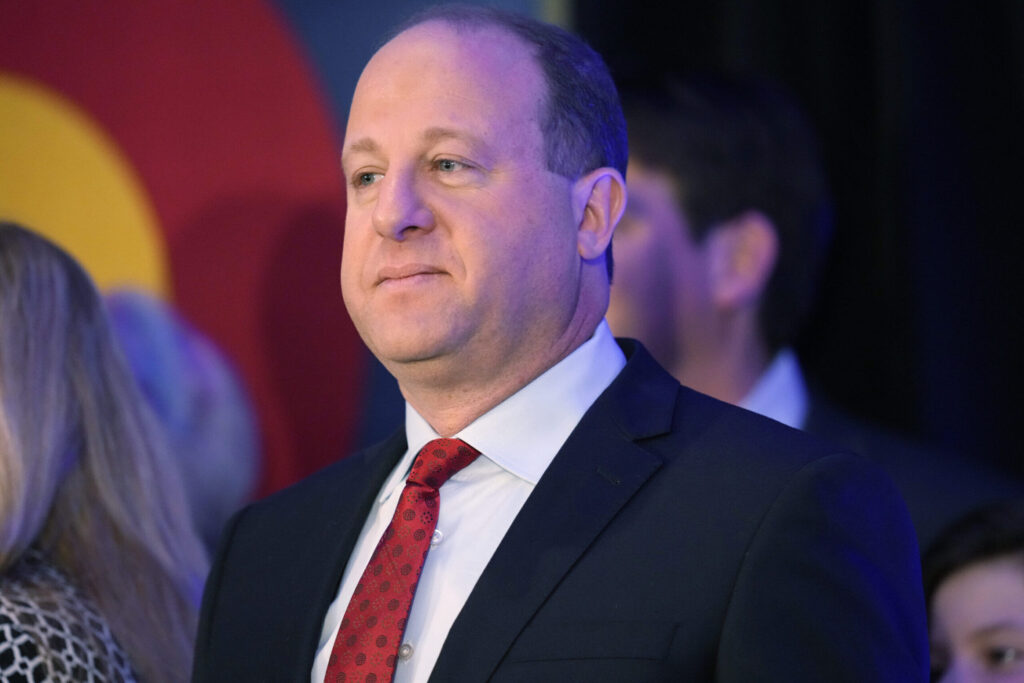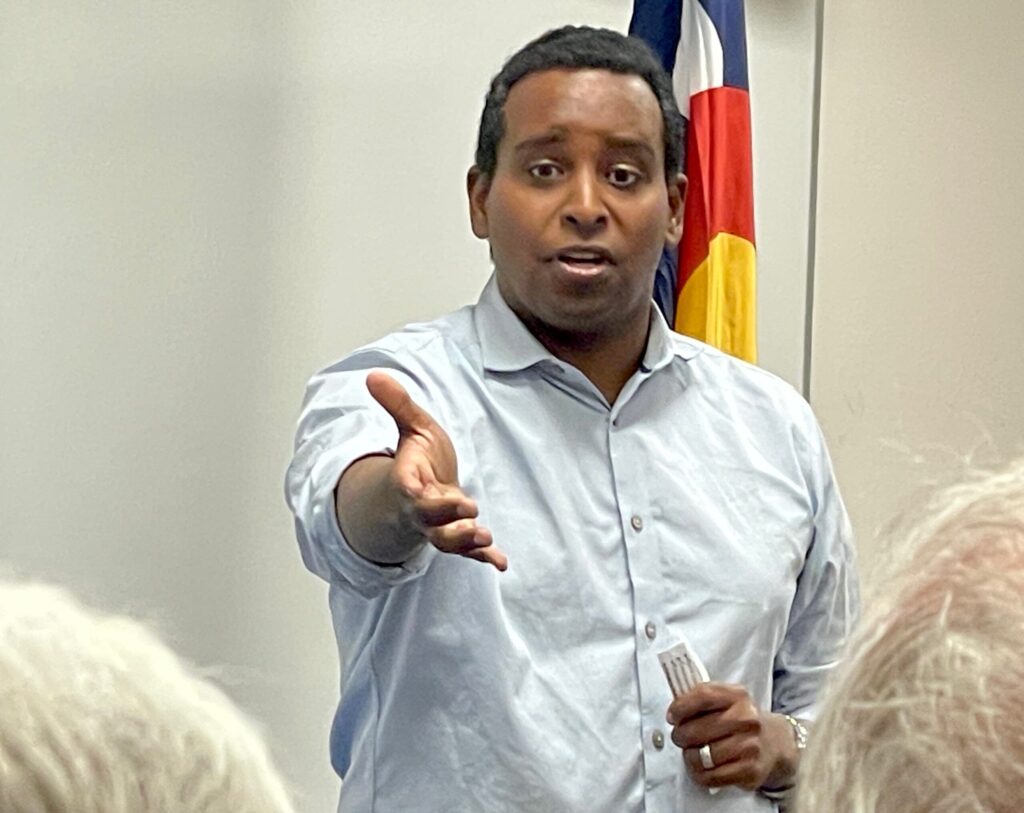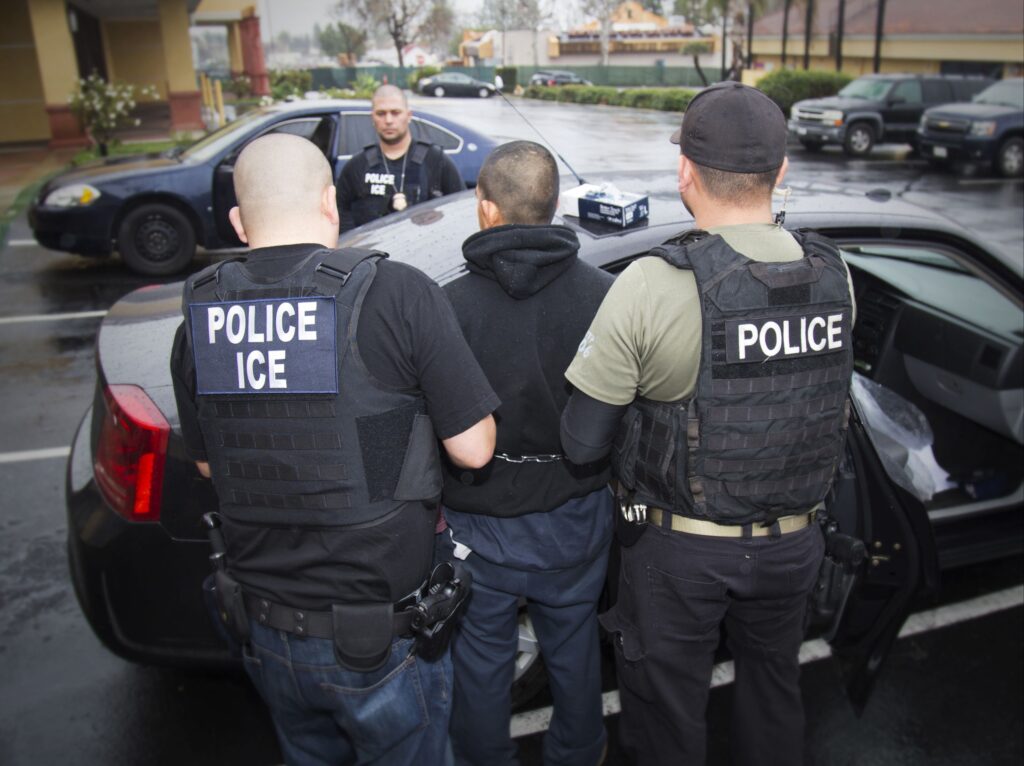COVER STORY | CU’S Fantastic Four: Classmates who joined Colorado’s young generation of leaders
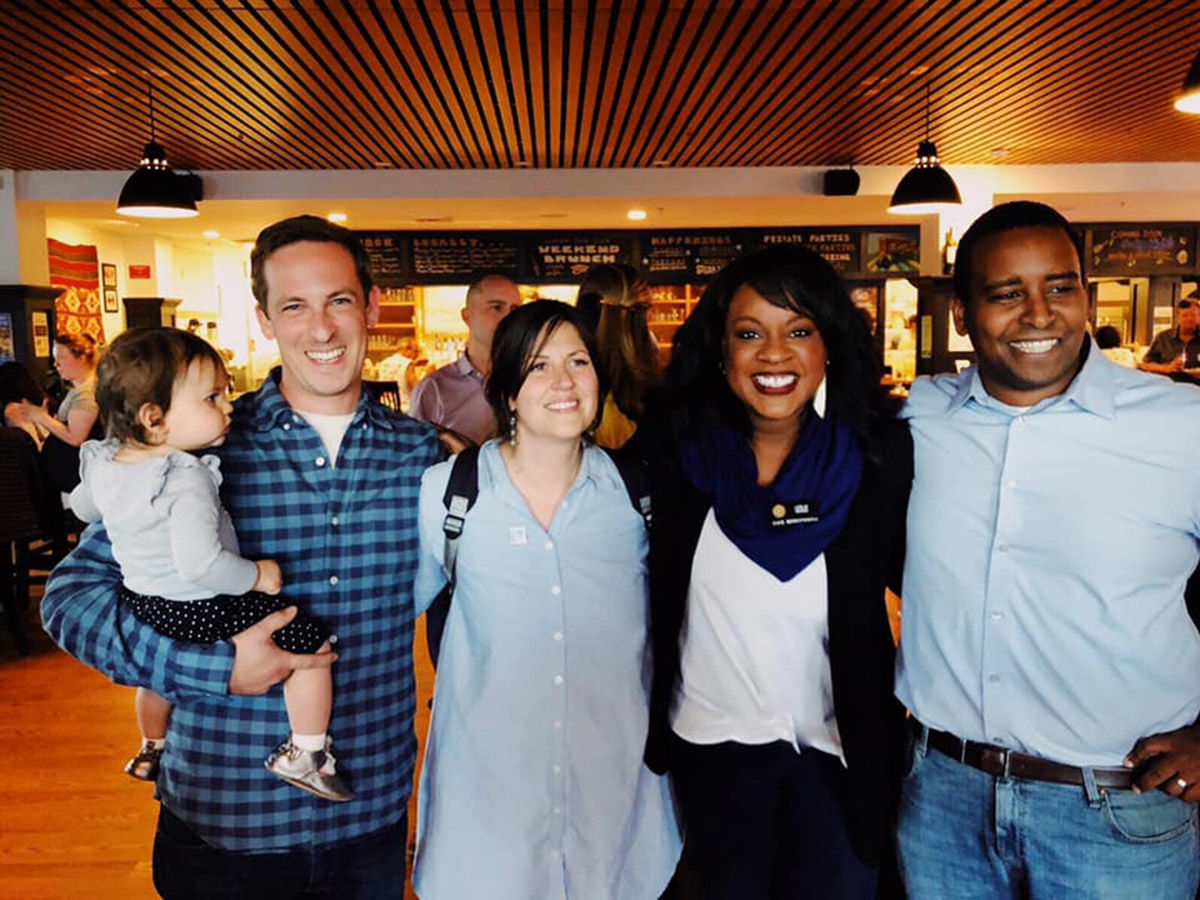
They met a few years into the new century when they were students at the University of Colorado Boulder and gravitated to positions in the school’s uniquely powerful form of student government.
Fifteen years later, after founding a nonpartisan organization dedicated to engaging young people in the civic process, the four friends from college have found themselves filling some of the most powerful political positions in Colorado.
It isn’t uncommon for a group of young friends to decide they’re going to conquer the world. But after last year’s election, these four Colorado Democrats – U.S. Rep. Joe Neguse, Senate Majority Leader Steve Fenberg, state Rep. Leslie Herod and Lisa Kaufmann, chief of staff to Gov. Jared Polis – are at least well on their way to conquering the state.
For decades, CU has boasted an autonomous student government that controls the largest budget for such a group in the country. Generated by student fees, it was some $36 million when the four friends were in school there, and it’s around $24 million these days.
The complex organization mirrors the three branches of federal and state government, including three “tri-executives,” a Legislative Council and a judicial branch with seven justices.
Herod, who was elected to her second term representing Denver’s state House District 8 in November, said the chance to work together in the student government in various capacities taught the friends they could have an outsized influence on policy.
“What was in the water at CU? We wanted to make change, and we wanted to make change together. We saw student government as the vehicle to make that change,” she told Colorado Politics.
“We learned we had the power to make real change through getting students engaged in the process. When we walked in, we had no idea students had that much power. When we found out, we decided we were going to make change for good,” she said.
“We learned a lot of tough lessons at an early age around how policy works and it doesn’t work, how different branches interact with each other. While we might want to do something, the regents might want to do something different, the city of Boulder might want to do something different. That is a part of why we are now here doing this work – it was ingrained in us; we learned together and we took our hard knocks together, and we succeeded together.”
She added: “You’ll notice none of us really stay in our lanes – we’re not lane-stayers.”
‘No master plan’
Fenberg, who was elected to Boulder’s Senate District 18 in 2016, agreed.
“When you’re a young person, you’re looking to be involved and have some authority shaping things, and then there’s an opportunity presented where you have the tools and resources – it very much shapes who you are,” he said.
“It feels like we were just kids, but we were doing thing – lobbying at the Capitol, working on ballot measures, working on legislation – doing things that had an impact on our campus and our community. All of us have kept doing that in different ways, but our community got a little bigger.
“There was no master plan,” he added with a laugh.
“I think we all knew we wanted to keep doing that work, and we were friends. If you’d asked me then if Joe would be in Congress, I think I would believe that, but the rest of it is all kind of weird. It’s almost comical how we all are still involved and still work with each other every single day.”
He paused for a moment to check his phone.
“I talk to Lisa like 12 times a day – she literally beeped in while we were talking – and talk to Joe almost every night. That’s how it’s been pretty much for 14, 15 years. The amount of times I’m talking to Joe, and Lisa beeps in and we merge the calls – that’s a normal occurrence on a weekly basis.”
Kaufmann made a similar point in an interview at her office in the state Capitol.
“There’s definitely been no master plan,” she said. “What you have is a group of friends – and I’m not including myself in this – Joe, Leslie and Steve, being really talented at giving voice to communities that need a voice and building effective coalitions, and being really focused about it. But while there’s no master plan, it doesn’t surprise me to see where they’ve each gone.”
She said it was CU’s student-run environmental center – funded by student government, it’s the largest center of its kind in the country – that drew her to the school.
“It is this unique platform to let college students have a platform to make a difference, with a real budget to make a difference,” she said.
“We found unity in purpose,” recalled Neguse, the first of the group to serve in public office when he was elected a CU regent in 2008 while he was still in law school.
“We were all driven young folks trying to make a difference and figured we could do that together. As fate would have it, we’ve had this wonderful friendship over the course of the next 15 years that’s enabled each of us to play a unique role in different ways.”
He continued: “I consider them some of my closest friends, and it’s exciting to be able to see the work they’re doing at the state level, to have Steve and Leslie on the second floor and Lisa on the first floor” of the state Capitol.
‘It feels like we’re family’
It was the decision to form New Era Colorado in 2006, after they graduated, however, that cemented their bonds and set them on the path they’re still traveling.
Since the four were among its founders – Fenberg served as its executive director until departing to run for the state Senate – the nonpartisan group has registered around 150,000 voters in Colorado and pushed the state to adopt online voter registration and pre-registration for residents as young as 16.
“When we finished student government, we knew we wanted to keep it going. That’s why we started New Era,” Herod said.
Kaufmann recalled brainstorming the blueprint for New Era with Fenberg during the summer after college when they fixed up her old diesel Mercedes.
“We were talking that summer about part of the reason these organizations don’t do an effective job turning young people out to vote is because it’s a lot of older people running organizations trying to talk to young people, and it wasn’t really authentic engagement. That was the theory of change behind starting New Era, that if you had young people developing engagement programs for young people, it would be more effective, and I think that’s completely borne out,” she said.
Fenberg said the foundation for their continued close friendship and working relationship was set that summer.
“From time to time, I’ll search my Gmail and find an email thread from 2006 of us all talking about naming this new organization,” he said. “The way we talked to each other back then is the way we work together now. I care about all of my colleagues, but I can’t say for sure every one of them will have my back no matter what. But when it comes to Lisa, Joe and Leslie, we will always look out for each other, politically or in a personal sense.”
He added: “It feels like we’re family. I don’t think very many people feel like they have that in politics. It’s one thing to have that at all, but in politics, people don’t trust each other – they’re trying to one-up, get an advantage, but for us, each other’s success is a success for all of us. When one of us does better, we all do better.”
All four stress that they’re part of a large cohort of civically minded alumnae who first worked together in CU’s student government at around the same time.
“We have folks in student government who are activist now, we have folks who are business leaders, we have folks who are running nonprofits and think tanks – there’s not a place or an issue that I have a question about that I can’t call someone who has been in the trenches with me all these years,” said Herod.
It’s a big group.
Their contemporaries include former state Sen. Jessie Ulibarri, who runs the State Innovation Exchange, known a SiX; Sergio Gonzales, deputy director of the Immigration Hub and a former top aide to U.S. Sen. Kamala Harris of California; Courtney Law, director of communications for the Museum of Contemporary Art Denver; Laura “Pinky” Reinsch, the former political director of LGBTQ advocacy organization One Colorado; Rob DuRay, a civic engagement consultant and co-founder of New Era; former Polis congressional staffer Jessica Bralish; top lobbyists Benjamin Waters, Brittany Morse Saunders, Jeff Thormodsgaard and Katie Wolf; Richard Murray, an attorney at Polsinelli PC; and Republican political consultant Ryan Lynch.
Other major figures in Colorado’s political landscape passed through CU’s student government in the years immediately before and after, including state Rep. Jovan Melton, former state Reps. Dan Pabon and Joe Salazar, attorney Scott Martinez, Democratic strategist Lynea Hansen, and Daniel Ramos, current executive director of One Colorado.
Playing politics
“We learned that we all had different areas of expertise and strength, and there was a dance we could do with each other to highlight those strengths and to win. That’s why you see us in all different positions,” Herod said.
“Some people are better at grassroots, some people are better at grass tops, some people are better at [communications], some are better at staying behind the scenes and doing the data. We learned that each of those roles were equally as important. Being a figurehead was not the end, the figurehead was not the goal. The goal was making policy changes.”
Lynch, who was president of the Sigma Nu fraternity and ran CU’s Interfraternity Council, worked in student government with the more liberal students as part of a longstanding alliance between progressive groups and the Greek system at the school.
The way he describes it, in those days the groups would negotiate slates of candidates and designate coveted staff positions to ensure both the more conservative and liberal groups would have a seat at the table.
“The spending autonomy, the organizational structure – these are all lessons most students will never get in college. These are real-life issues, everything from budgeting and spending, and in the case of the alliance, working together with people that have opposing viewpoints on a lot of things,” he said.
“It wasn’t as political as it might seem, given that we’re all in politics now. But you learn about collaboration and coming together to achieve a common cause.”
Lynch said the experience was invaluable.
“You didn’t see a lot of people playing politics. What you saw was a lot of people working together for the benefit of the student body as a whole. Now we’re all in positions where we’re playing politics, but what we learned from working collaboratively, we can take forward into our current endeavors,” he said.
He pointed to an issue that brought the sides together.
“Rising tuition was going to impact everybody,” he said. “It was certainly a hot-button issue for them, but it transcended political lines. Tuition was growing exponentially at the time; that’s something that equally impacted everybody. I don’t know that everybody agreed on the solution, but everybody agreed something needed to be done to curb rising tuition at CU. That was an issue that transcended party lines.”
Neguse said the cost of public higher education has always been a key motivation for him.
“That’s what brought me into politics,” he told Colorado Politics. “Being the son of immigrant parents, knowing just how important public higher education was for my family’s success – for my dad, who went to a four-year state school in California. At that time, the big policy battle in 2003, 2004, was the woeful state of our state budget and the fact higher education was on the chopping block. We organized different campaigns to make the case that public higher education was a community good, that it was a value to the entire community, not just to those who matriculate.”
Confronting the chancellor
Likewise, the factions united in the wake of a crime that drew national attention, when an African-American CU fraternity member was the victim of a racially motivated attack on the streets of Boulder.
“That was a defining moment that pulled us together. We all went down to the Boulder City Council, and the city responded accordingly,” Lynch recalled. “We were getting these real-world life and career lessons you wouldn’t get anywhere else.”
That’s one reason Fenberg and Herod organized a letter to CU Chancellor Phil DiStefano after he proposed slashing the student government’s budget from $23 million to $1.9 million last April.
CU’s student government, read a letter signed by more than 50 former student leaders, “is one of the only student governments with student fee autonomy and that is a significant factor in what has allowed CU-Boulder to produce so many future civic leaders. …
“The University of Colorado has long invested resources into a mission of instilling values of service and leadership in the students who walk the halls of that great state institution. However, we believe that your recent decision all but removes the most impactful and successful leadership development program that has ever been in place at CU.”
Within days, DiStefano backed down.
“There was something about the work we had to do at CU, which is why student-fee autonomy is so important to us, regardless of the ideology of the students leading student government is,” Herod said.
While acknowledging that the four friends’ relationship stands out for its depth and longevity, Herod said it was important not to treat it as something unique.
“My advice to kids thinking you can make change is, you can make change,” she said. “Get in the trenches, roll up your sleeves and get it done. Really listen to people in your coalition – build those coalitions and work together. Not blindly but boldly.”
